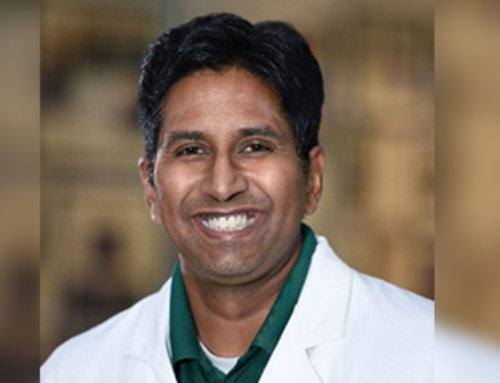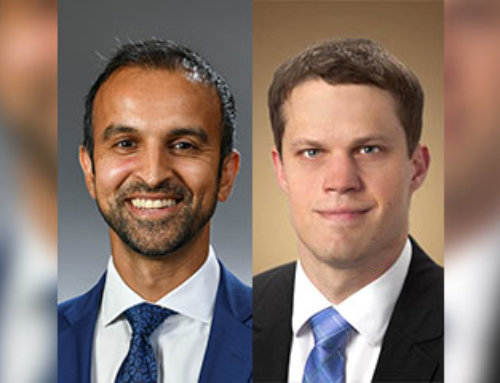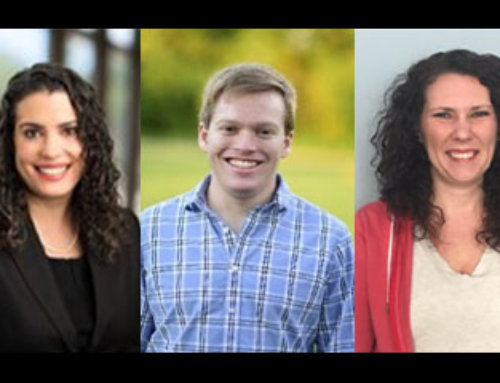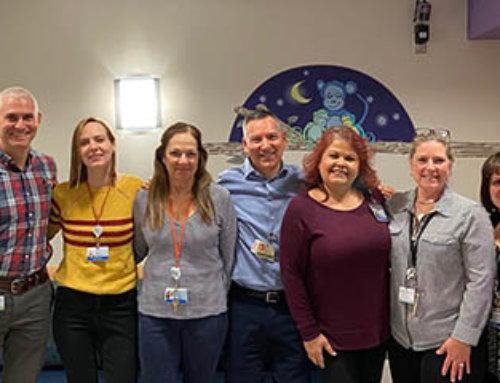Neomi Shah, MD, received Bridge funding from the AASM Foundation in 2012. She went on to successfully apply for a federal career-development award, which has resulted in 10 different publications and a subsequent, larger, investigator-initiated grant. Learn more about how her AASM Foundation award opened the door to career success.
In 2012, Neomi Shah, MD, was awarded a total of $75,000 as recipient of the AASM Foundation Bridge to Success Award. Her project aimed to explore vascular endothelial growth factor (VEGF) levels and coronary collaterals among patients with acute myocardial infarction screened for sleep apnea. The primary finding of her project was that a dose response relationship between the severity of sleep apnea and levels of VEGF was noted, where increasing sleep apnea severity was associated with increasing VEGF levels.
“Over expression of VEGF has been shown to be critical in the development of coronary collateral circulation post myocardial infarction (MI), and thus, higher levels may influence outcomes in the setting of an acute MI in patients with sleep apnea” Dr. Shah explained.
As an Associate Professor of Medicine at the Icahn School of Medicine at Mount Sinai in New York, Dr. Shah’s research interests are focused on understanding the role of obstructive sleep apnea on cardiovascular disease development and progression. Specifically, her team is working on risk stratifying sleep apnea patients who may be at the highest risk for cardiovascular disease events by leveraging state-of-the-art cardiovascular imaging such as hybrid PET/MRI and delayed enhancement cardiac imaging as examples.
Early into her career, The Bridge to Success Award helped provide funding and salary support for a 1 to 2-year period for Dr. Shah while she was in the process of obtaining larger, federal funding for a career-development award.
“Without the Bridge to Success Award from the AASM Foundation I may have had to increase clinical time substantially which would have hindered successful research productivity and may have resulted in a career path change for me,” said Dr. Shah.
Dr. Shah’s project was amongst the first to challenge conventional wisdom that sleep apnea only contributes to pro-inflammatory and pro-thrombotic events. In a cohort of acute myocardial infarction patients, she found that patients with sleep apnea had less severe myocardial infarction as measured by circulating biomarkers of myocardial injury.
Her work was recently validated by another group who found similar results. This emphasizes the need to appropriately stratify individuals with sleep apnea into high versus low-to-moderate risk for future cardiovascular events and to investigate the discrepancy between stroke and myocardial infarction risk associated with sleep apnea.
This is especially important as recent clinical trials fail to show a significant reduction in myocardial infarction risk in patients being treated with continuous positive airway pressure (CPAP) but does suggest reduction in stroke risk. Collectively, this highlights a major gap in current knowledge about the mechanistic link between sleep apnea and atherosclerotic cardiovascular disease and CPAP’s anti-atherosclerotic actions. Dr. Shah is currently funded to investigate both these issues.
Dr. Shah and her research team was recently awarded a large investigator-initiated grant to assess sleep apnea and its treatment’s impact on atherosclerosis. This was funded by the National Institutes of Health. Their study will not only elucidate the mechanistic link between sleep apnea and atherosclerosis but will also provide crucial evidence pertaining to risk-stratification for future clinical trials evaluating the role of sleep apnea treatment in the primary and secondary prevention of cardiovascular disease events.
Having been in the shoes of an early career sleep researcher to now an independent investigator, Dr. Shah understands the challenges young investigators in the sleep research field face in finding mentors and securing funding. Dr. Shah stresses the importance of having both excellent mentors and sponsors when you are an early-career sleep researcher.
Dr. Shah states she was fortunate to have excellent mentors including Dr. Robert Kaplan (Einstein, NY) who was her on-site mentor and got her involved in the Hispanic Community Health Study/Study of Latinos which allowed her to continue to strengthen her publication record. In addition, Dr. Shah had off-site mentorship from Dr. Susan Redline (Harvard), whom the field of sleep medicine knows well. Dr. Redline is a terrific supporter of young investigators and has been Dr. Shah’s role model.
She suggests discussing your research goals with your mentors regularly as your research interests may evolve and ensure adequate communication between mentoring team and yourself.
“Persistence is key and therefore do not give up early in your research career,” said Dr. Shah. “Believe in yourself and pursue your career goals even if others may not see your potential early in your career. Most importantly, be passionate about what you do.”
Written by Corinne Lederhouse
AASM Communications






